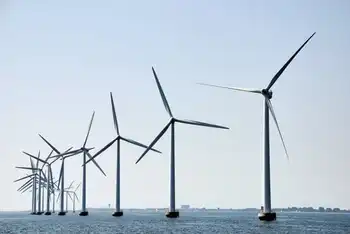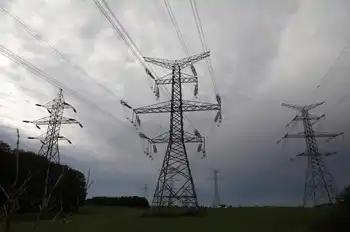Islamist hoped to strike nuclear plants
LONDON, ENGLAND - A man accused of plotting to down trans-Atlantic airliners was also developing plans to cripple nuclear power stations, a European gas pipeline and Britain's electricity grid, a prosecutor told a court recently.
Assad Sarwar, 27, a British Muslim with ties to Islamic radicals in Pakistan, also wanted to destroy the main exchange for Britain's Internet service providers and target an airport control tower, prosecutor Peter Wright said.
Wright said Sarwar decided not to join the seven other defendants in carrying out their planned suicide mission to blow up at least seven flights to the United States and Canada.
"On the evidence you may conclude he had other terrestrial targets in mind as well," he said.
All eight defendants have denied the charges.
Sarwar compiled detailed information on London's Canary Wharf finance district, a Belgium-Britain gas pipeline, Britain's electricity grid and oil refineries for possible attacks, Wright said.
He also stored information about an air traffic control tower at London's Heathrow airport on a computer memory stick.
"The horizon of Sarwar's terrorist ambition, we say, was limitless," Wright said.
In a diary, Sarwar made references to the Fawley oil refinery, in Hampshire in southern England, the Coryton oil refinery in Essex in southeast England, and Kingsbury oil terminal in central England.
Sarwar visited Pakistan between June 13 and July 8, 2006 — likely to confer with Islamist leaders over the planned jetliner attacks, Wright said.
Related News

Energy Vault Lands $110M From SoftBank’s Vision Fund for Gravity Storage
BERN - Energy Vault, the Swiss-U.S. startup that says it can store and discharge electrical energy through a super-sized concrete-and-steel version of a child’s erector set, has landed a $110 million investment from Japan’s SoftBank Vision Fund to take its technology to commercial scale.
Energy Vault, a spinout of Pasadena-based incubator Idealab and co-founded by Idealab CEO and billionaire investor Bill Gross, unstealthed in November with its novel approach to using gravity to store energy.
Simply put, Energy Vault plans to build storage plants — dubbed “Evies” — consisting of a 35-story crane with six arms, surrounded by a tower consisting of…




